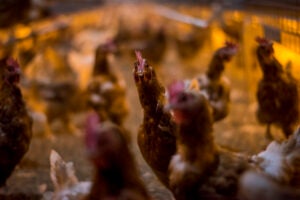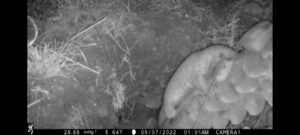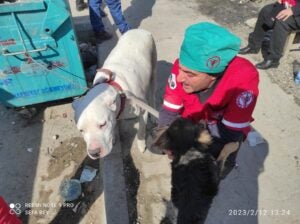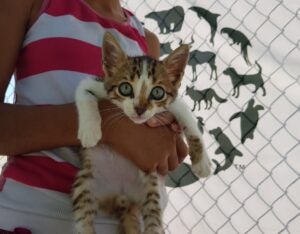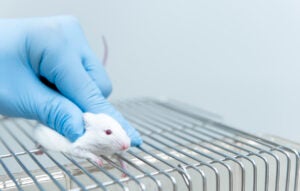
ANTAKYA,Türkiye—More than three weeks after the deadly earthquake in Türkiye, the animal rescue team from Humane Society International is still finding dogs and cats alive in abandoned apartments, damaged buildings or wandering the streets. The animal charity estimates that more than 1,500 animals―dogs, cats, rabbits, goldfish, a rooster, budgies, reptiles and more―have been brought to receive medical care at just the three main veterinary field clinics set up by local veterinarians and groups in the city of Antakya, where HSI’s team is working. HSI estimates that tens of thousands of animals across the country will have perished.
Most of the animals being rescued and brought to the clinics, have suffered cuts, bruises, infected wounds, infected eyes, dehydration, starvation and shock. Unbelievably, despite most of these animals seeming to have had little to no access to food or water, they have survived against the odds.
- Photos / video of HSI search and rescue
- Photos / video of animals saved and reunited with owners
Kelly Donithan, HSI’s director of animal disaster response, is leading HSI’s deployment. Ms Donithan says: “It’s remarkable that after more than three weeks since the first earthquake, our team is still finding animals alive, but they are in desperate need of help. Around 1,500 have been treated in just the three main veterinary field hospitals where we’re working in Antakya, and the numbers of dead animals across the country is likely to run into the tens of thousands. The animals we’re finding still alive are often in abandoned and damaged apartments, where they’ve been all alone throughout this disaster. I can only imagine how frightening it must have been for them enduring four earthquakes over the past couple of weeks, and also experiencing the deafening drone of helicopters overhead. When I think of how nervous my own animals are at home when there are loud bangs like fireworks, it’s heart breaking to think how traumatized these animals must have been. Now they’re getting all the love and care they need to heal, but every day we’re finding more amidst the rubble and wreckage.”
Humane Society International’s team of experienced disaster responders have come from the United States, Europe, Mexico, Costa Rica, Colombia and India.
HSI responds to disasters around the world to assist animals and communities in need, and in the past has stepped in to provide emergency treatment to animals affected by volcanic eruptions in Guatemala; deadly earthquakes in Nepal, Ecuador and Mexico; hurricanes, flash floods and cyclones in India, Haiti and Mozambique; and wildfires in Australia and Chile; as well as helping refugees and their pets fleeing the war in Ukraine.
ENDS
Media contact: Wendy Higgins, director of international media: whiggins@hsi.org
Donate to HSI’s Animal Rescue Fund here to provide grants, vital supplies and fund our teams in emergency situations such as this.


